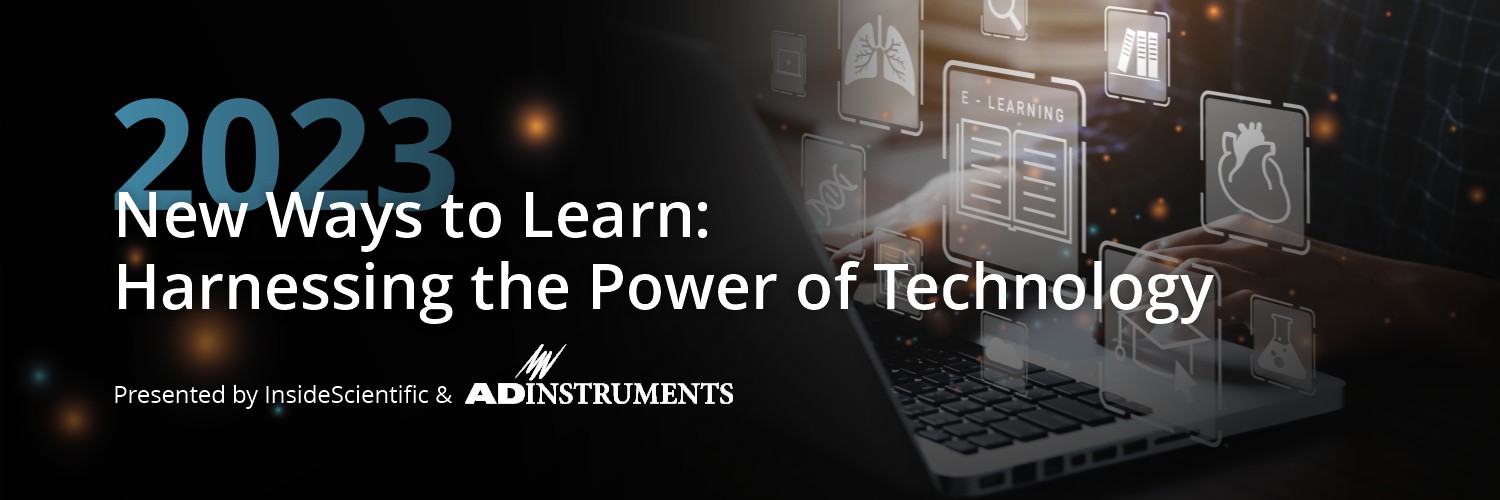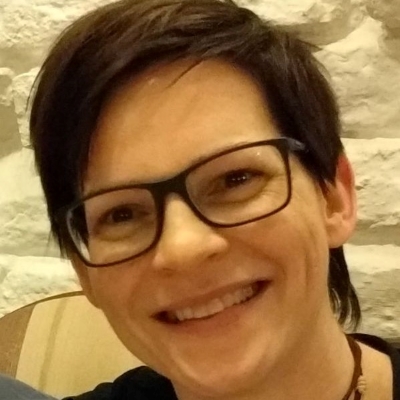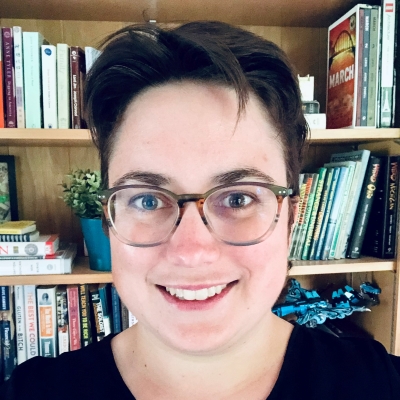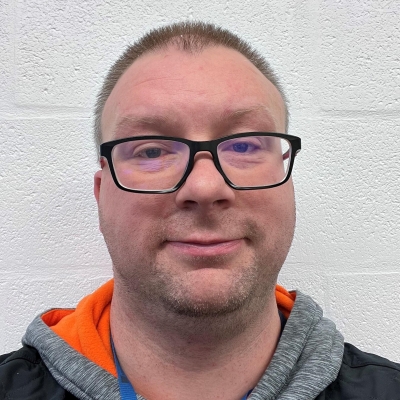2023 New Ways to Learn: Harnessing the Power of Technology
ADInstruments and InsideScientific are excited to present this 4-part webinar series focused on current and emerging trends in science education.
As technology increasingly infiltrates the educational landscape, educators must be prepared to harness its many possibilities and curb its risks. In hands-on subjects like the life sciences, technology became highly relied-upon to ensure students could continue to learn during the pandemic. How do we make sure that students are benefiting from the best of hands-on instruction and technology-enhanced teaching?
This series aims to share new and effective ways to teach students across the scientific disciplines, including physiology and chemistry. Experts share their experiences, tools, and best practices to help educators adopt technological tools while ensuring students remain engaged and successful.
Expert Perspectives on Technology-Enhanced Learning
WED, MAR 22, 2023
Jana Kusch, PhD & Marc Demolder, MSc
This webinar is led by two experts who have vast experience in using technology to deliver education in several European countries. They discuss what technology they have tried and tested, what worked (and what didn’t!), and what they have learnt along the way. They also dive into the student perspective on how technology can enhance learning. This webinar concludes with a Q&A Session that addresses questions from the audience.
Key Topics:
- Why invest in technology to deliver education?
- What are the positive impacts of technology student learning?
- What to watch out for when choosing and implementing technology for education.
Jana Kusch, PhD
Senior Scientist
Institute of Physiology II
University Hospital Jena
Marc Demolder, MSc EE Biom Engineering
Engineer
Pharmacology
University of Antwerp
Engaging Students Online in a Clinical Pathophysiology Course
THU, MAR 30, 2023
Patricia Halpin, PhD
In this webinar, Associate Professor Patricia Halpin (Chair of the Teaching Section of the American Physiological Society) discusses how she harnesses technology to engage her physiology students in an online clinical pathophysiology course.
Dr. Halpin has used technology to teach since 2000, and has published educational research in the fields of flipped teaching, dramatization, and asynchronous course delivery. In particular, her experience using online tools to teach third- and fourth-year students in an asynchronous clinical pathophysiology course was sparked by the COVID-19 pandemic, when teaching was moved online. Dr. Halpin shares how a focus on clinical cases, relating students’ learning to their career goals, and the incorporation of low-stakes quizzing led to positive student outcomes, with 72.7% of students finding the online learning platform used, Lt, effective in helping them learn their course material.
Key Topics:
- Identify key knowledge and competencies for students in a clinical pathophysiology course.
- Compare and contrast synchronous and asynchronous teaching modes.
- Understand the benefits of clinical cases, real-life applications, and low-stakes quizzing for positive student outcomes.
- Identify ways that you can vary your teaching to account for students with different academic backgrounds.
- Understand how to incorporate technology into your teaching by starting small.
Patricia Halpin, PhD
Associate Professor of Biology & Biotechnology
Department of Life Sciences
University of New Hampshire at Manchester
It’s Time for Change! How to Promote Diversity, Equity, Inclusion, and Respect in your Chemistry Lab
WED, APR 5, 2023
Kaitlynn Arnholt, MA, MSc & Elaine Nam, PhD
ADInstruments has partnered with Vernier® Science Education to enhance lab-based learning. Our online platform, Lt, integrates with Vernier’s Go Direct® Sensors to help educators teach interactive and engaging college chemistry labs that promote success for all students.
Watch this webinar as we demonstrate our Rate Law Determination experiment that utilizes Vernier Science Education’s Go Direct® SpectroVis Plus Spectrophotometer to study the kinetics of the reaction of crystal violet with sodium hydroxide.
We explore how this experiment has been embedded in the Lt platform and show how tools in Lt promote community and scientific identity, reduce bias, and meet students’ individual needs. Learn how you can easily customize and adapt content for your curriculum to meet the needs of your students.
Key Topics:
- Recognize the impact of underrepresentation and marginalization in the chemistry community and discuss current trends and initiatives to increase Diversity, Equity, Inclusion, and Respect (DEIR).
- Discover Lt as a learning platform that supports student engagement and success.
- Explore the Rate Law Determination experiment from the Lt Chemistry Collection with a LIVE demo of Vernier’s Go Direct® SpectroVis Plus Spectrophotometer.
Kaitlynn Arnholt, MA, MSc
Business Development Manager
Chemistry Education
ADInstruments
Elaine Nam, PhD
Director of Chemistry
Technical Support / R&D
Vernier® Science Education
The Journey From Pandemic Teaching Into The New Normal
WED, APR 12, 2023
Gethin Evans, PhD
Gethin has taught physiology in the Department of Life Sciences at Manchester Metropolitan University since 2008. The Department has a long history of investing in technology for teaching in all areas of Life Sciences. The Faculty of Science and Engineering increased their investment in a variety of technology platforms to assist with teaching content and delivery during the pandemic. Since then, they have evolved the use of these platforms while moving into the “new normal” and the Faculty are due to move into a new facility in Summer 2023 in which “active learning” forms a key part of the strategy moving forwards. Gethin discusses the evolution of the use of this technology – from pre-pandemic, to online learning, the return to business as usual, as well as looking forward to future plans.
Key Topics:
- Understand the context in which the use of a variety of platforms are used within the department.
- Discuss the challenges associated with online learning that these platforms assisted with during the COVID-19 pandemic.
- Discuss the key learning outcomes from the use of these technologies and how these can be modified with the return to campus-based teaching.
Gethin Evans, PhD
Deputy Head of Department
Life Sciences
Manchester Metropolitan University






